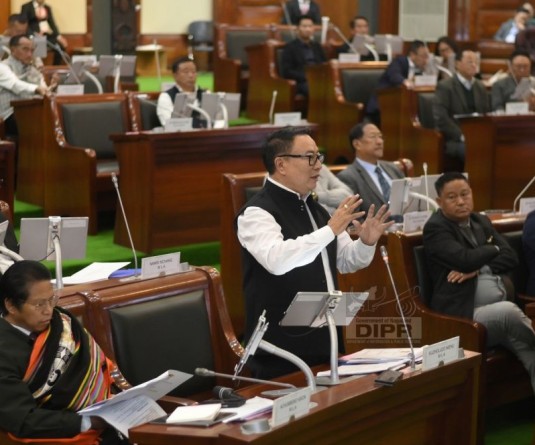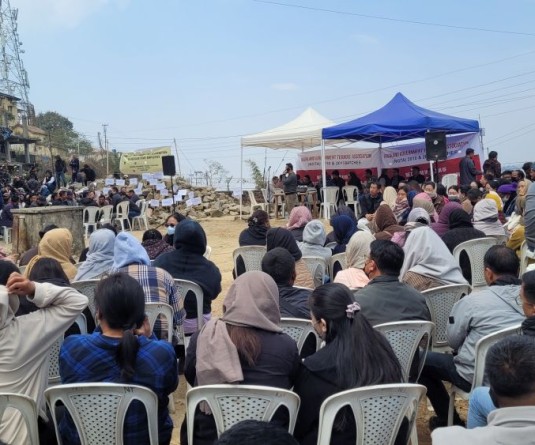
Participants and trainers of the basket weaving training organized by Youthnet at Mhainamtsi, Peren.
KOHIMA: As part of the Impact 5000 by 18, a five-year campaign on entrepreneurship and employment, Youthnet in partnership with the Department of Youth Resources & Sports, Government of Nagaland, and Nagaland Bamboo Development Agency, conducted a vocational training program on bamboo basket weaving at Mhainamtsi, Peren, from March 11-14, 2014.
The training was held keeping in mind the need to create an entrepreneurship ecosystem where there is contribution by Nagas at all levels of the social strata, thus boosting the private sector and economy as a whole. A case in point is the Amonar Tea, an indigenous tea brand, with the requirement of bamboo baskets to package their tea, for which rural craftsmen are being trained to meet the requirement. In this connection, Youthnet with the help and expertise of NBDA targeted two villages, namely Mhanamtsi and Jalukie B due to their proximity to Dimapur, and interested people from these villages, especially those with no constant source of income, were invited to participate in the program. The trainers were from a Self Help Group in Tuli, Mokokchung, arranged by NBDA. One of the entrepreneurs behind Amonar Tea, Sentinaro Alley, was also present throughout the training.
The trainees were briefed on the purpose of the program and the campaign as a whole, further covering all aspects of bamboo basket weaving in order that the trainees can explore other entrepreneurial avenues by themselves in the future. During the course of the training, a design for Amonar Tea was also selected, based on the abilities of the trainees and the last part of the training had all the participants working on it to master the selected design.
The trainees were, in the meantime, informed that there will be several follow-up visits to the villages where the baskets will be purchased from them, provided they meet the specifications as discussed.
Under the Impact 5000 by 18 campaign, Youthnet is targeting rural entrepreneurs this year with several programs already being conducted, while also maintaining that training is not the focus and is only a means to achieving an end, the end being linkage between entrepreneurs and their markets.






